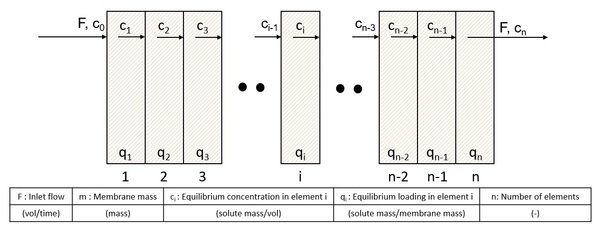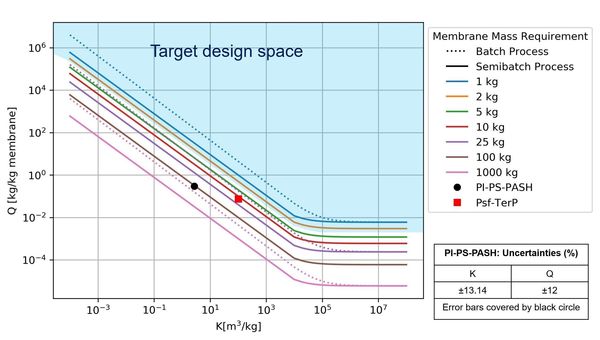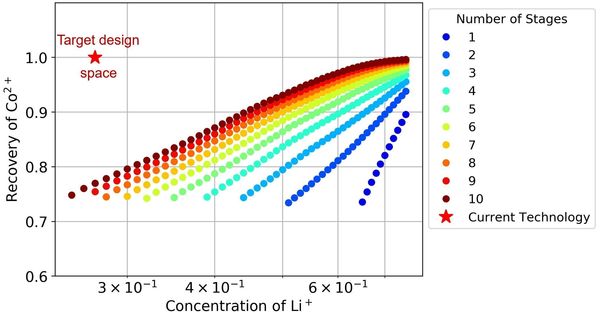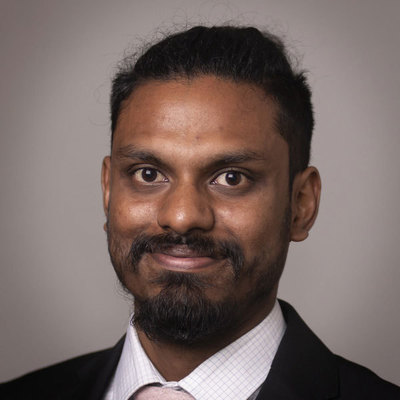Multiscale Optimization of Novel Membrane Separations
Accelerating Nanomaterials Design with Process Systems Engineering
There have been significant advances in nanoscience and material engineering in the recent past, yet, novel sustainable technologies for environmentally sensitive applications such as water purification are slow to manifest. We hypothesize that this is due to an existing gap between fundamental materials research and process systems engineering, and bridging this gap will augment the translation of high-performance materials from the laboratory scale to effective, environmentally friendly technologies. We propose to bridge this gap using equation oriented optimization (mathematical programming) and algorithm development to address three key challenges:
- Develop systematic frameworks to identify novel applications for emerging materials
- Guide materials development through inverse design i.e. given a system level goal (quantification of sustainability such as unit production cost of drinking water), define targets for nanoscale materials (for example, hydraulic permeability of a membrane)
- Develop tools for uncertainty quantification and propagation through the proposed algorithms.
Membranes for Residential Water Treatment
 Schematic for semibatch adsorptive membrane process
Schematic for semibatch adsorptive membrane process
 Material property targets for adsorptive membranes
Material property targets for adsorptive membranes
At the material (nano-) scale, we explore the feasibility of triblock polymers for residential water purification systems to remove heavy metal contaminants. We develop a systems-scale mathematical model for an arbitrary adsorption-based separation process and perform sensitivity analysis to set nanomaterial performance targets. Our studies so far show that for water purification, we already have the materials needed to efficiently remove heavy metal contaminants at home. However, the cyclic nature of the adsorption process would necessitate the development of new infrastructure to regenerate depleted membranes yearly, which is one of the future directions we will be exploring in this project.
Superstructure Optimization of Diafiltration Cascades
 Superstructure for continuous diafiltration cascades
Superstructure for continuous diafiltration cascades
 Material property targets for diafiltration membranes
Material property targets for diafiltration membranes
Diafiltration is a continuous operating strategy for staged-membrane cascades, wherein dialysate is strategically added to offset concentration effects and achieve recovery of high purity and high value products. Although common for niche separations in industry, few studies have systematically analyzed multi-stage diafiltration processes. We present a novel modeling and superstructure optimization framework to:
- Elucidate optimal multi-stage process configurations with complex recycle strategies and
- Systematically identify property targets for membrane materials.
As an illustrative example, we consider the separation of lithium (Li) and cobalt ions (Co) for battery recycling. We find that if a 3-stage diafiltration process is carefully designed, emerging membrane materials are likely to outperform existing technologies for Li/Co separation in battery recycling. In the future, we plan to extend the already developed models into a full molecules-to-systems framework for integrated molecular engineering of new materials for targeted separation processes.
Collaborators
William A. Phillip
Associate Professor, Department of Chemical and Biomolecular Engineering, University of Notre Dame
Principal Investigator, WATER Lab, University of Notre Dame [link]
Elvis A. Eugene, William A. Phillip, Alexander W. Dowling (2019). Data Science-Enabled Molecular-to-Systems Engineering for Sustainable Water Treatment, Current Opinion in Chemical Engineering, 26, p. 122–130. [open access link]
Elvis A. Eugene*, William A. Phillip and Alexander W. Dowling. Material Property Goals to Enable Continous Diafiltration Membrane Cascades for Lithium-Ion Battery Recycling. 9th International Conference on Computer-Aided Process Design (FOCAPD) 2019, Copper Mountain Resort, CO, July 14, 2019. Poster.
Elvis A. Eugene*, William A. Phillip and Alexander W. Dowling. Optimizing Materials Discovery and Novel Membrane Systems: Mathematical Frameworks. AIChE Midwest Regional Conference, Unversity of Illinois in Chicago, Chicago, IL, March 18, 2019.
Elvis A. Eugene, William A. Phillip, and Alexander W. Dowling*. Material Property Targets for Nanostructured Adsorptive Membranes in Residential Water Purification Applications. AIChE Annual Meeting, Pittsburgh, PA, October 29, 2018. [link]
Elvis A. Eugene, William A. Phillip, Alexander W. Dowling. Material Property Goals to Enable Continous Diafiltration Membrane Cascades for Lithium-Ion Battery Recycling. Proceedings of the 9th International Conference on Computer-Aided Process Design (FOCAPD) 2019, p. 469 - 474
